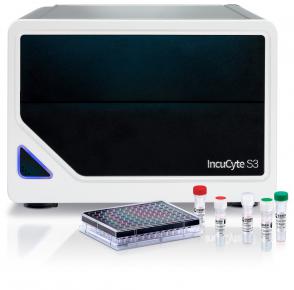Antigen-mediated antibody internalization plays an important role in several antibody-based therapeutics. There is a continued growing body of interest in the application of antibodies as therapeutic agents for delivery of treatments to sites or cells of interest with promise of increased efficacy and reduced side effect potential.The significance and impact of therapeutic antibodies as effective treatments for disease span across numerous areas such as autoimmunity, cancer and inflammation, cardiovascular and infectious diseases, and many other disorders.The evolving therapeutic impact of antibody internalization on the antibody discovery field and targeted-mediated internalization includes the delivery of highly toxic drugs to cancer cells via antibody drug conjugates (ADCs), removal or degradation of surface receptors from cancer cells (i.e. EGFR), and antibody immunotherapies used to identify tumor cells for immune cell killing (i.e. ADCC or ADCP). Additionally, measuring and optimizing functional responses to antibodies, such as antibody clearance is of importance. Pinocytosis, which is one of the main elimination routes of antibodies, requires antibody optimization for qualitative pharmacokinetic measurements during antibody development. As each approach requires a series of antibody features, for example, to enable maintenance on the cell surface for identification of tumor cells, or for rapid internalization when delivering ADC’s, it is important to understand the uptake profile and clearance of antibody candidates for optimal antibody engineering and internalization characteristics.
Current approaches are limited by requiring labor-intensive labeling of each antibody, washing steps, and/or single-time point analysis. This can lead to unnecessary and lengthy processes, loss of cells, or missed and incorrect measurements due to limitations of single time-point analysis. Therefore, throughout the entire antibody screening and functional characterization process, there is a strong need to have an efficient, affordable method to fully and rapidly quantify antibody internalization using real time live-cell analysis.Essen Bioscience is proud to offer a new, novel solution that is compatible with both human and mouse test antibodies (utilizing IncuCyte Human and Mouse IgG1 FabFluor red antibody labeling reagent) for rapid, kinetic, high-throughput analysis of antibody internalization.
Read more













